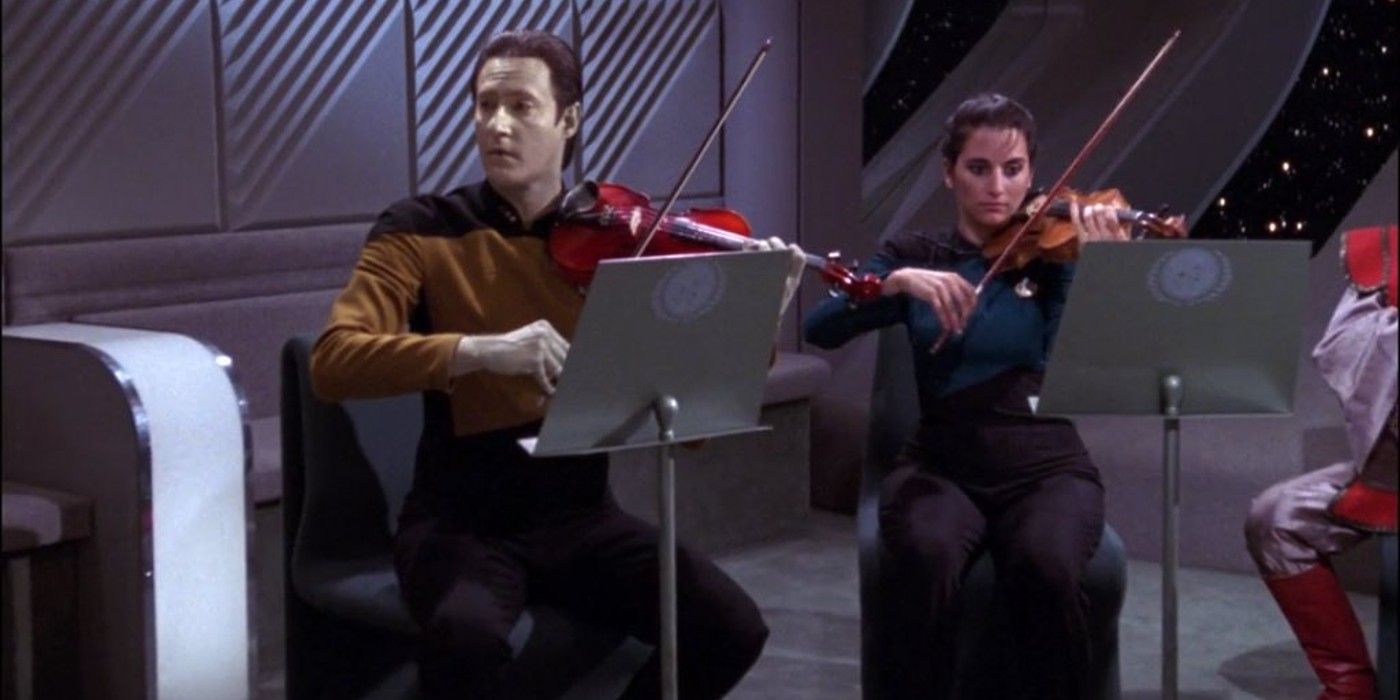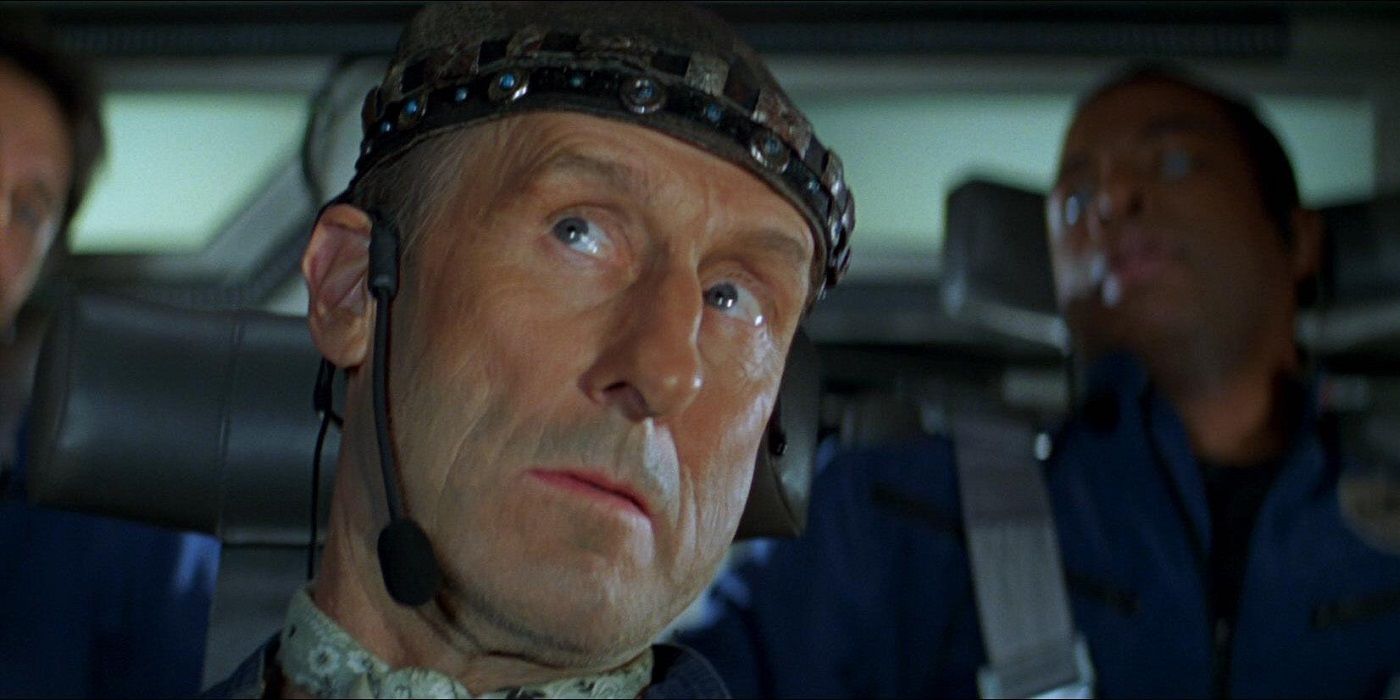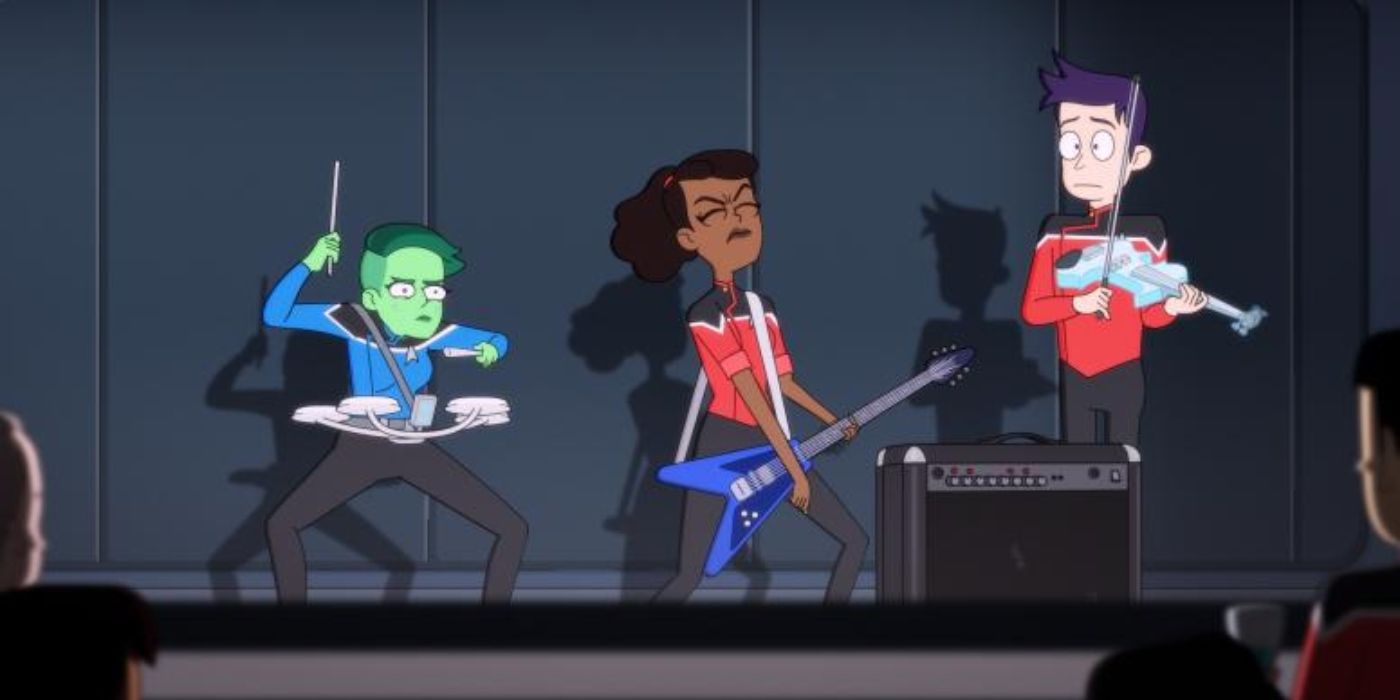Star Trek has always presented its future in part as a reflection of the contemporary world: using a utopian vision of humanity united to observe our decidedly more flawed present. Over time, that has developed into an amusing trend. While the franchise happily depicts futuristic life onboard Starfleet ships or on the various planets of the Federation, it rarely delves into the pop culture of the future. Speculation on that front is always a fool's errand, but Star Trek's solution has been to more or less ignore it in favor of far more familiar music.
The franchise's fascination with 20th- and 21st-Century culture has been a source of quiet chuckles among fans. The future seems very interested in this particular segment of its past, and fans note tropes like Ben Sisko's interest in baseball or Tom Paris's Captain Proton holodeck programs with a knowing smile. That extends to music as well, and while the likes of Mozart or Gilbert & Sullivan don't raise eyebrows when played in the 24th Century, contemporary rock 'n' roll make the lack of future music stand out all the more. The bright future of Star Trek appears to exist in musical null space.
Pop songs weren't a part of the equation earlier in the saga for extremely practical reasons. The rights to a given tune cost money, which could be better spent on things like good actors and special effects. Rock 'n' roll was still in its comparative infancy when The Original Series first aired, and the idea of including it in a show about the far future – where music would likely sound like nothing we could conceive of – seemed redundant. The first show touched on music only briefly, notably with an extended sequence of Uhura singing in Season 1, Episode 2, "Charlie X" and the infamous "space hippies" in Season 3, Episode 20, "The Way to Eden."
That began to change with Star Trek: First Contact, whose plot involved traveling back in time to the mid-21st Century when modern pop music was presumably more prevalent. James Cromwell's Zephram Cochran was portrayed as something of a rock fan: playing Steppenwolf's "Magic Carpet Ride" as his experimental starship blasts off, and greeting the freshly arrived Vulcans while Roy Orbison's "Ooby Dooby" plays on the jukebox behind them. Star Trek Discovery Season 1, Episode 7, "Magic to Make the Sanest Man Go Mad" shows the crew partying to Wyclef Jean's "We Trying to Stay Alive," while Star Trek Prodigy Season 1, Episode 6, "Kobayshi Maru" depicts Dal blasting a thinly veiled version of AC/DC's "Thunderstruck" at holographic Klingons. The Kelvinverse played the long game, with 2009's Star Trek featuring a young James T. Kirk stealing his stepfather's vintage car to the sounds of Beastie Boys "Sabotage," only to blast it at the villains Apocalypse Now-style as an adult in 2016's Star Trek Beyond.
The trend helps ground Star Trek in modern pop culture, as the instant familiarity connects our flawed present with its bright future. But it also leads to an amusing paradox: its characters are listening to music some three centuries old, which – while hardly unheard of – raises an obvious question. Hasn't anyone composed new music in the last 300 years? Presumably, they have, it's just never been played onscreen, since doing so would likely be alienating to viewers. If the characters are relaxing or playing music to achieve an emotional effect, it makes sense to use music that the audience can connect to.
That leaves the comparative dearth of Federation-era music a bit of a conundrum, which the franchise itself has sheepishly acknowledged. "Is that classical music?" Dr. McCoy inquires when "Sabotage" plays in Star Trek Beyond. While Paul Stamets mentions that his uncle plays in a Beatles cover band in Discovery Season 1, Episode 3, "Context Is for Kings;" formally recognizing that people still know who the Beatles are in the 23rd Century. Star Trek: Lower Decks tackled the issue in its own inimitable way when Mariner and Tendi bond over "Klingon acid punk" in Season 2, Episode 3, "We'll Always Have Tom Paris." It's era-specific to the characters at least, though it still uses contemporary genres to clue the audience in.
Clearly, the producers are aware of the issue and make self-referential use of it as needed. But because the question of Federation-era popular music remains both unresolvable and conveniently ignored, the blind spot is apt to continue: one of the endearing little quirks that long-term franchises tend to develop over time. It's a singular – if amusing and harmless -- trap that not even Star Trek may be able to escape.



